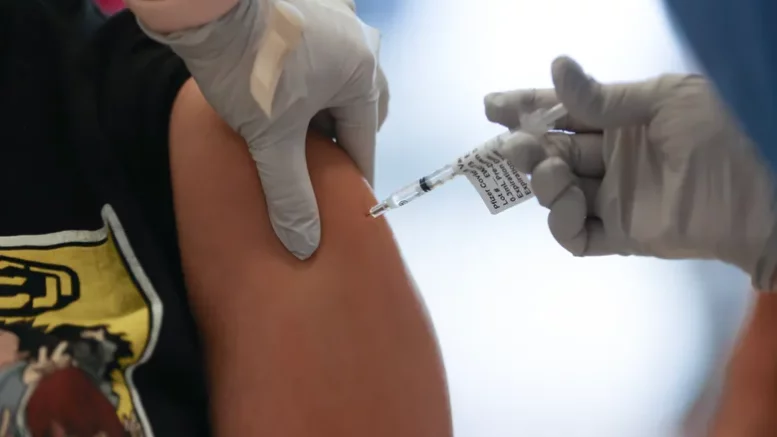A recent study suggests that individuals receiving multiple doses of a vaccine, particularly for COVID-19, may benefit from alternating arms for each dose. This finding, if confirmed, could potentially enhance immune responses, according to researchers.
The study focused on responses to the first two doses of COVID-19 vaccines and compared individuals who received both doses in the same arm with those who alternated arms. Interestingly, participants who alternated arms showed a slight increase in immunity compared to those who received both doses in the same arm. While the observed boost may seem modest, it could be significant for individuals with weakened immune systems due to age or health conditions.
Dr. Marcel E. Curlin, an infectious disease physician at Oregon Health & Science University and the lead researcher, emphasized the need for further investigation before making any recommendations. However, he suggested considering alternating arms for vaccine administration, given the potential benefits.
Although previous studies comparing the two approaches have been limited in scope and yielded mixed results, none have demonstrated a significant disparity in immunity. Notably, a mouse study highlighted the efficacy of a single lymph node in generating robust immunity following vaccination, suggesting that most vaccines effectively target a single arm.
While alternating arms may offer some advantages, extending the interval between vaccine doses could potentially confer greater benefits, particularly for immunocompromised individuals. Jennifer Gommerman, chair of the immunology department at the University of Toronto, underscored the importance of exploring various vaccination strategies to enhance immune responses, especially for vulnerable populations.
In the study conducted by Curlin and his colleagues, antibody levels were monitored in matched pairs of university employees who received either consistent or alternating arm vaccinations. The results revealed a notable increase in blood antibody levels among participants who alternated arms, with levels rising by as much as fourfold. These findings, published in The Journal of Clinical Investigation, underscore the potential impact of alternating arms on immune response durability.
While the results initially appear to contrast with findings from a previous German study, which suggested that consistently using the same arm might yield a better immune response, the observed discrepancies could be attributed to timing differences in antibody level assessments. Nevertheless, the German researchers acknowledge that alternating arms could be one of several strategies to enhance immune responses and warrant further exploration.

